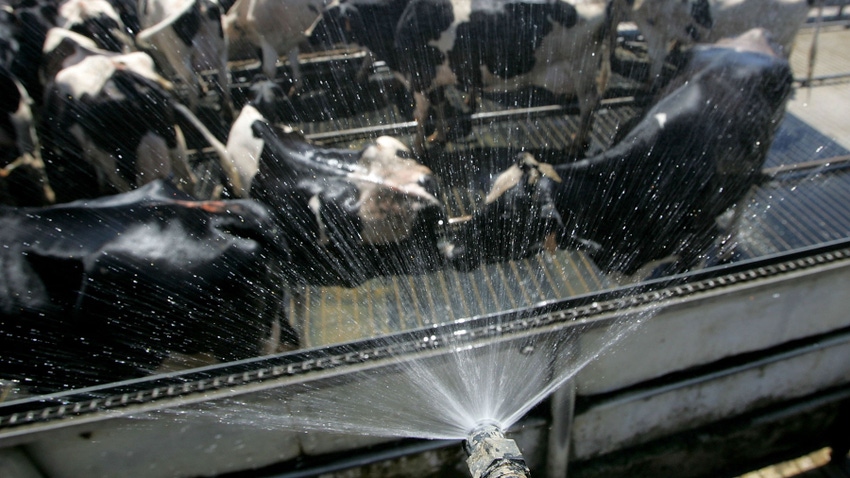February 9, 2023

The next round of funding for the Dairy Excellence Grant Program opened Feb. 1, and Pennsylvania dairy producers have through Feb. 28 to submit a grant application.
The program is ideal for dairy producers who want to improve cow comfort, milk production per cow or overall efficiency on the dairy. Leveraging funds provided through the state, this is a competitive grant program that offers up to a 50% match — or up to a maximum match level of $5,000 — to approved dairy farms.
Grant selections will be made, and winning applicants notified, by March 15.
Improvement projects can include anything related to improving dairy farm efficiency, cow comfort, milking facilities, housing facilities or feeding systems. The project should focus on improving milk production per cow or enhancing overall farm profitability and efficiency.
Examples of applicable projects include fans, sprinklers or misters in freestall or tiestall barns; curtains or other ventilation improvements; mattresses or construction to move to deep-bedded sand stalls; variable-speed pulsation; new lighting; cow brush or foot bath installation; and more.
The center has awarded a total of $580,000 to more than 100 Pennsylvania dairy producers through previous rounds of the grant program. More than 26,000 Pennsylvania dairy cows have been affected by these improvement projects, and herd sizes have ranged from about 50 cows to 2,000 cows.
Dairy producers who received the grants during previous rounds have used the funds to upgrade feed bunks, install new crowd gates, invest in new mattresses, enhance walkways and drainage buffers, and more.
To participate in the Dairy Excellence Grant program, dairy farms must complete an application. A $100 application fee is required upon submission, but it will be reimbursed if the application is not accepted.
Individuals must have a dairy farm to apply. As part of the application process, dairy producers will be required to:
Be compliant with the National FARM Program or a similar program.
Have a conservation and nutrient management plan in place.
List two consultants or advisers who work with the farm (nutritionist, accountant, veterinarian).
Explain how the improvement will help their overall operation, and aid in milk production per cow, efficiency or cow comfort.
Grant recipients will be notified by March 15. Expenses and invoices must be submitted by June 30.
Dairy farm businesses or individuals who received the Dairy Excellence Grant during the fall 2022 round are not eligible to receive a grant this time. Those who applied for a Dairy Excellence Grant at any point but were not accepted into the program are eligible to apply again.
To apply, visit centerfordairyexcellence.org to submit your application online or download a printed application to mail back. Applications will only be accepted through Feb. 28.
For more information, contact Melissa Anderson at [email protected] or 717-636-0779.
Solving water runoff
Water running off the surface of soil after a significant rain event can cause water quality concerns in local waterways.
This runoff often is not distributed evenly across a landscape. Usually, the water collects in concentrated flow paths that sometimes look like small creeks flowing over the soil's surface.
An upcoming online webinar on concentrated flow paths on farms will focus on what causes concentrated flow paths, why they can be an issue and what can be done to reduce the negative effects of these runoff events.
The webinar is for farmers and land managers concerned about water moving across the surface of their soil, affecting their fields. It is free to attend and will be held online from noon to 1 p.m. Feb. 20.
Registration is required to receive the link to access the webinar.
For more information or to register, visit extension.psu.edu.
Blueberry insects, diseases
An upcoming blueberry grower update will help growers learn about insect and disease issues in blueberries that can be hard to diagnose and identify.
During this event, participants will see examples of blueberry problems and what management methods may work.
Participants will have the opportunity to gain pesticide credits for their Pennsylvania Department of Agriculture pesticide license.
Registration is required to receive the link to access the webinar. Registrants will also receive access to the webinar’s recording.
It will be held online from 10 a.m. to noon March 9. The cost is $15.
For more information and to register, visit extension.psu.edu.
You May Also Like




